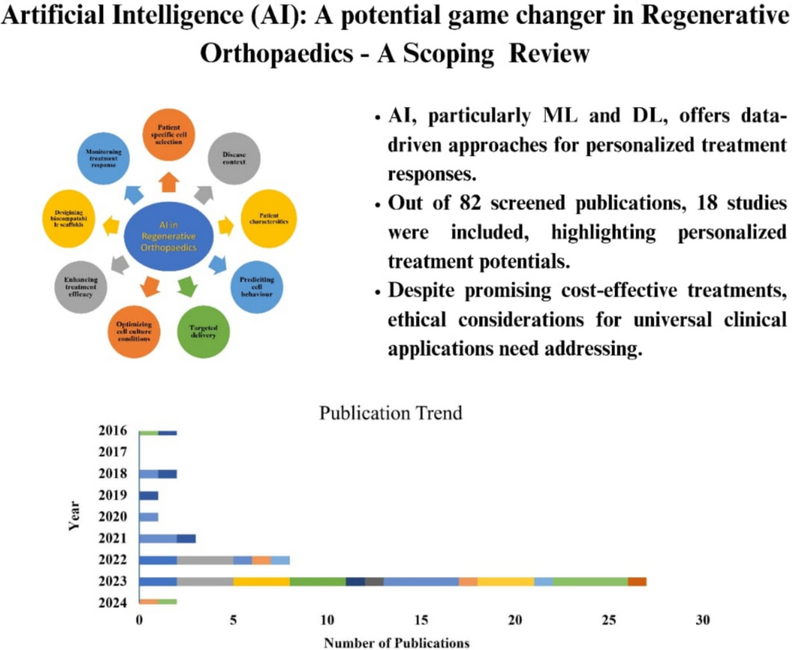Artificial Intelligence (AI): A Potential Game Changer in Regenerative Orthopedics—A Scoping Review
Published in Computational Sciences and Surgery
The Role of Artificial Intelligence (AI)
The authors explore the use of artificial intelligence (AI) in regenerative orthopedics. AI has the potential to revolutionize this field by:
- Improving Treatment Decisions: Many factors influence how patients respond to regenerative treatments. AI can analyze large datasets of patient information to identify patterns and predict the most effective treatment options for each individual.
- Machine Learning and Deep Learning: These AI techniques are particularly powerful. They use a data-driven approach to train models that can make decisions similar to humans. By feeding data into these algorithms, they can learn and make predictions based on their learnings.
Looking Ahead: The Future of AI in Orthopedics
The use of AI in regenerative orthopedics is a rapidly growing field with immense potential. However, there are also some challenges to consider:
- Ethical Considerations: As with any new technology, ethical considerations around data privacy and the use of AI in healthcare need to be addressed.
- Need for More Research: While promising, AI applications in regenerative orthopedics are still under development. More research is required to ensure its effectiveness and safety in clinical settings.
Conclusion
Regenerative orthopedics offers exciting possibilities for treating various musculoskeletal conditions. AI has the potential to significantly enhance this field by personalizing treatment plans and improving patient outcomes. As research progresses and ethical considerations are addressed, AI is poised to become a true game changer in regenerative orthopedics.
Follow the Topic
-
Indian Journal of Orthopaedics

This is the official publication of the Indian Orthopaedic Association, focusing on clinical orthopaedics and basic research.

Please sign in or register for FREE
If you are a registered user on Research Communities by Springer Nature, please sign in